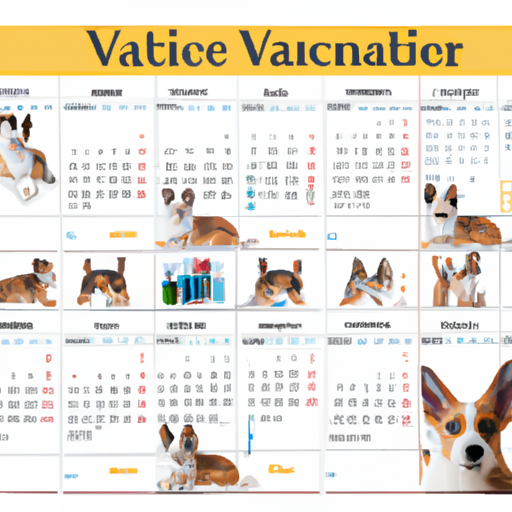Introduction
As a caring and responsible pet owner, you’re undoubtedly aware that keeping your furry friend healthy involves more than just feeding them balanced meals and ensuring they get enough exercise. One of the essential aspects of dog care is making sure they receive their yearly vaccinations. But what shots do dogs need every year? This guide will delve into that question, providing you with all the information you need to ensure your dog stays in the best possible health.
The Importance of Vaccinations for Dogs
Vaccinations play a key role in your dog’s overall health. They help prepare your dog’s immune system to defend itself against any invasion of disease-causing organisms. Vaccinations contain antigens, which mildly stimulate your dog’s immune system to recognize and fight off these organisms without causing the disease itself.
Core Vaccinations
Core vaccinations are those recommended for all dogs, regardless of location, lifestyle or breed. They protect against diseases that are widespread, severe or easily transmissible, and some that can be passed to humans. The core vaccines include:
- Rabies: This is a fatal viral disease that can be transmitted to humans. It’s required by law in most states.
- Distemper, Hepatitis, Parvovirus, and Parainfluenza (DHPP): This is a combination vaccine that protects against these four diseases.
Non-Core Vaccinations
Non-core vaccines are given depending on your dog’s exposure risk. These include:
- Bordetella Bronchiseptica (Kennel Cough)
- Leptospirosis
- Lyme Disease
- Canine Influenza (Dog Flu)
Vaccination Schedule for Dogs
Your dog’s vaccination schedule will largely depend on their age, medical history, environment, travel habits and lifestyle. However, here is a general guideline:
| Age | Vaccination |
|---|---|
| 6-8 weeks | DHPP (vaccines for distemper, adenovirus [hepatitis], parainfluenza, and parvovirus) |
| 10-12 weeks | DHPP and Leptospirosis |
| 12-24 weeks | Rabies |
| Every 1-2 years | DHPP |
| Every 1-3 years | Rabies |
Note: This is just a general guide. Your vet may recommend a different schedule based on various factors.
Potential Side Effects of Vaccinations
While vaccines are essential for your dog’s health, they can cause some side effects. Most are short-term and mild, like soreness at the injection site or mild fever. However, severe reactions, though rare, can occur. If your dog shows any signs of an allergic reaction, such as swelling, difficulty breathing, or vomiting, contact your vet immediately.
Frequently Asked Questions
1. Can I vaccinate my dog at home?
While some vaccines are available for purchase, it’s recommended to have vaccinations done by a professional. Your vet can ensure the vaccines are stored and administered correctly, and they can monitor your dog for adverse reactions.
2. Can vaccines make my dog sick?
Most dogs do not have any serious side effects from vaccines. If your dog seems a bit under the weather after getting vaccinated, this is usually normal and short-lived.
3. How much do dog vaccinations cost?
The cost of dog vaccinations can vary based on factors like your location, the type of vaccine, and your vet’s fees. On average, expect to spend between $50 and $200 per year on your dog’s routine vaccinations.
4. What if my dog misses a vaccination?
If your dog misses a vaccine, it’s important to reschedule as soon as possible. Your vet can advise on the best course of action.
5. Can older dogs get vaccinated?
Yes, older dogs can and should get vaccinated. However, their vaccine requirements may be different from younger dogs, so it’s best to consult with your vet.
In conclusion, vaccinations are a crucial part of keeping your dog healthy and happy. As a caregiver, understanding what shots your dog needs every year can help you provide the best care for your beloved pet. Always consult with your vet for the most appropriate vaccination schedule for your pet.



